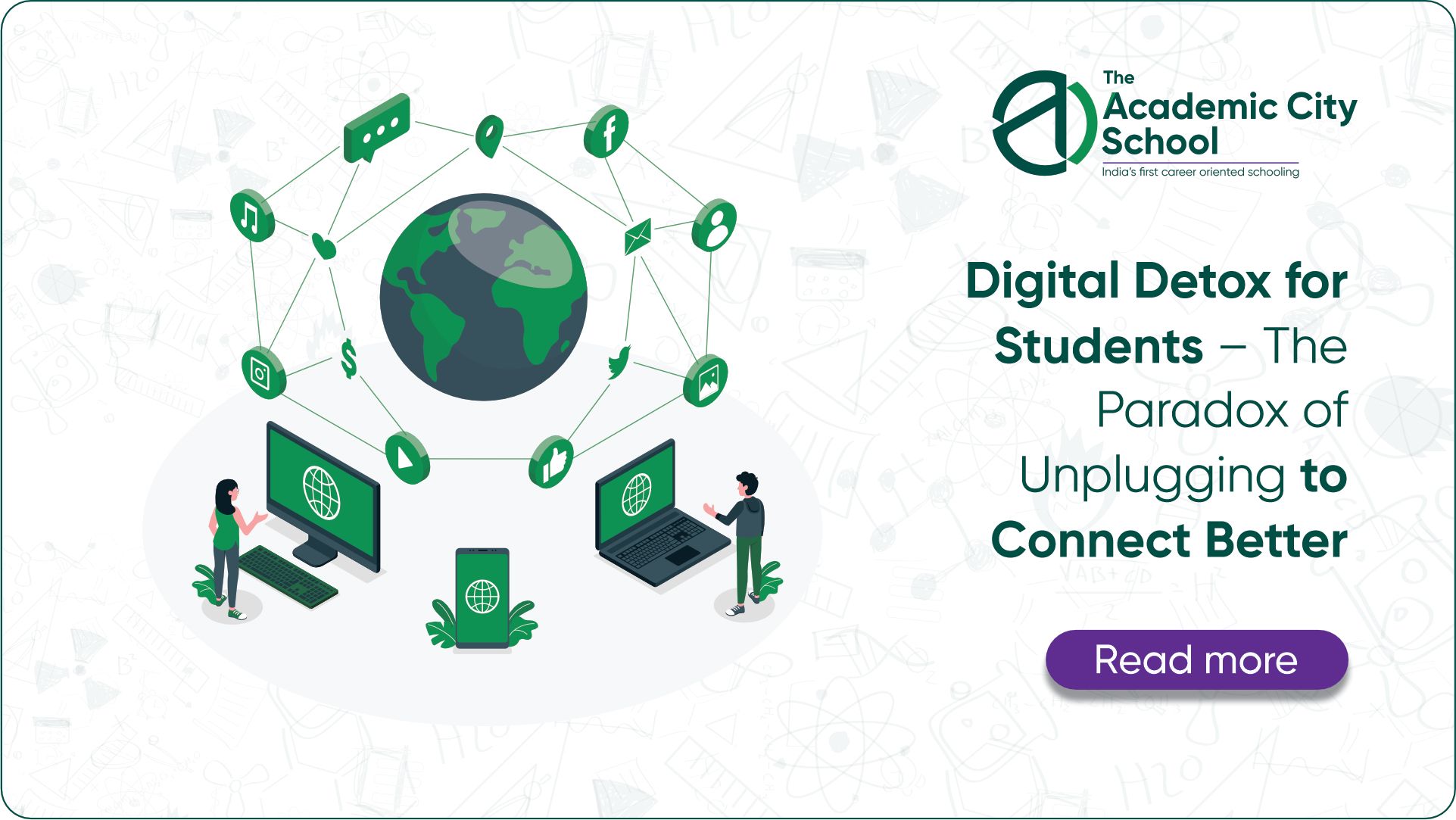Digital Detox for Students – The Paradox of Unplugging to Connect Better

“Almost everything will work again if you unplug it for a few minutes… including you.” – Anne Lamott
Screens are everywhere — classrooms, homes, even in leisure time. While technology fuels learning, too much of it can leave students restless and emotionally drained. For parents, the big question is: How do schools balance digital learning with real-life experiences?
That’s where hostel schools for boys and girls in Bangalore and CBSE residential schools in Bangalore are leading the way, building in digital detox routines that protect young minds and maintain balance.
Why Digital Detox Is Essential
- Overstimulation: Constant scrolling or gaming overstimulates the brain, reducing focus.
- Sleep disruption: Blue light from screens affects melatonin, making it harder for children to rest well.
- Emotional overload: Social media can heighten anxiety and bring about extreme mood swings.
A UNICEF study in 2022 noted that students who limit screen time to under two hours daily report better concentration and emotional health compared to heavy users.
How Boarding Schools Make Detox Practical
Structured Schedules
Residential schools in Indore and Bangalore design routines with limited device use. Academic blocks, sports and other activities naturally reduce screen dependence.
Tech-Free Zones
Libraries, dining halls and classrooms are often “no-phone spaces.” This gives scope for children to be present in the moment.
Outdoor Engagement
From football fields to debate clubs, children discover joy in face-to-face teamwork, not just online gaming.
Guided Digital Literacy
Instead of banning technology, schools teach mindful use — how to research effectively and stay cautious about distractions. This helps in building healthy online practices.
Skills Students Gain From Screen Breaks
- Focus: Improved attention spans for deeper learning.
- Social skills: Stronger peer bonding through real conversations.
- Resilience: Learning to manage boredom without resorting to devices.
- Creativity: Free time sparks drawing, reading, writing or even new hobbies. As discussed in an earlier article, boredom is quite good for children.
The American Academy of Pediatrics suggests balanced “media diets,” where device time is matched with offline exploration. Boarding schools are uniquely structured to put this into practice.
The Academic City School: Balance at Its Core
At The Academic City School (TAC), digital detox is a culture of balance. Students learn when and how to use technology and when to step away.
- Tech-Free Hours built into daily routines.
- Pastoral care teams guiding emotional wellbeing.
- Co-Curricular activities that make screen breaks natural.
- Future readiness programs that blend digital literacy with life skills.
Conclusion: Switching Off to Switch On
Screens are here to stay. But discipline and balance make the difference. Schools that embrace digital detox prepare children for life where screens dominate.
For parents exploring boarding schools in Karnataka or residential schools in Indore, the right question is not “Does the school use technology?” but “Does the school teach balance?”
At The Academic City School, that balance is at the heart of every child’s growth, building focused and emotionally healthy learners.





